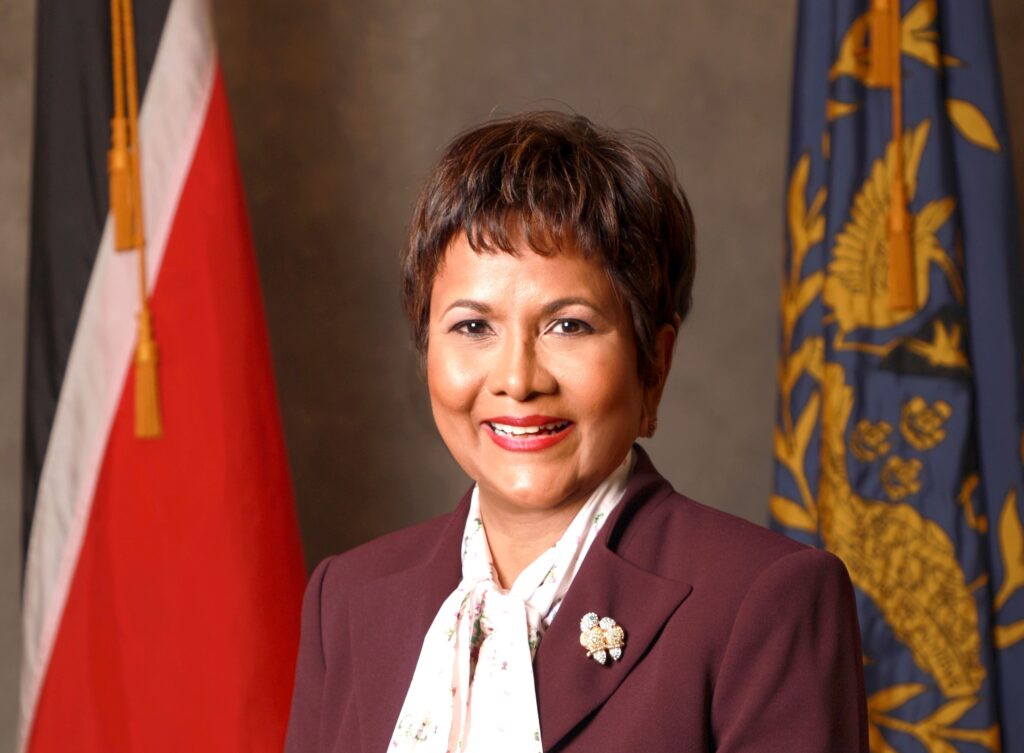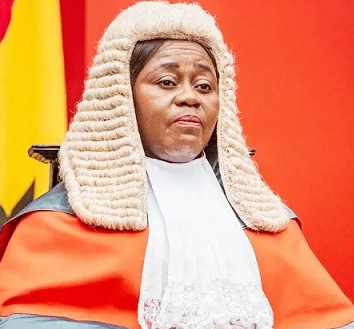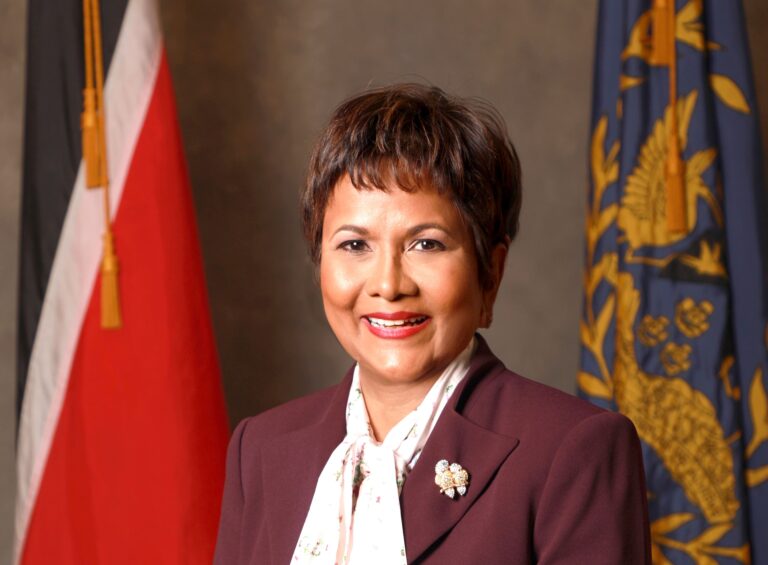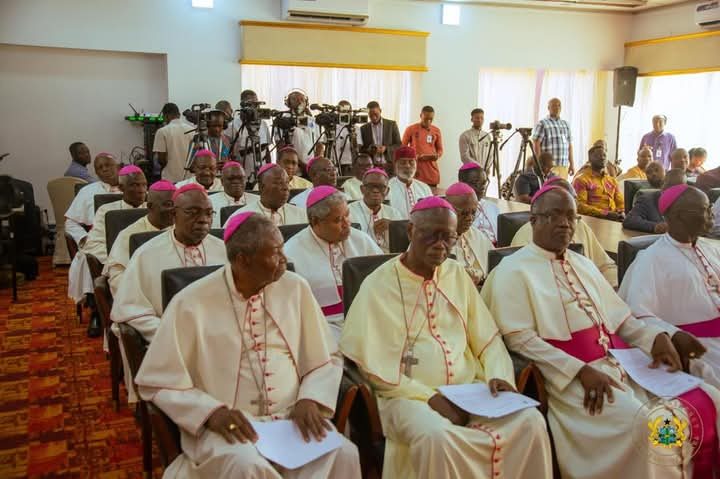
The First Session of the 13th Republican Parliament of Trinidad and Tobago commenced on Friday, May 23, 2025, with a ceremonial opening held at the historic Red House in Port of Spain. This event marked the formal inauguration of the new parliamentary session and reaffirmed the constitutional processes underpinning the nation’s democratic governance.
In accordance with Section 40(2)(c) of the Constitution of the Republic of Trinidad and Tobago, Her Excellency Christine Carla Kangaloo, O.R.T.T., President of the Republic, appointed the following nine (9) individuals as Independent Senators:
- Anthony Vieira SC is returning to Parliament as an Independent Senator, a position he held in the 10th, 11th and 12th Parliaments. Mr. Vieira has been an attorney-at-law since 1983 in the civil, industrial, family and criminal courts and is certified in Sports Arbitration and as an Advanced Commercial Mediator. He was appointed Senior Counsel on 8 May 2023. Mr Vieira has acted as Legal Consultant to the Minister of Education, a trainer for Officers of the Ministry of Consumer Affairs on Consumer Legislation and Practice and was involved in the review and drafting of the Copyright Bill and the Telecommunications Bill (2000).
- Mr. Deoroop Teemal is a senior Civil Engineer and Project Manager with forty-four years’ experience in Contract Administration, Construction Implementation and Water and Waste water Engineering. In the socio-cultural field, he has been President of the Hindu Swayamsevak Sangh since 1998 and President of the National Council of Indian Culture since 2023. He has served as an Independent Senator since November 2018 and was the Chairman of the Joint Select Committee on Land and Physical Infrastructure.
- Mr. Michael Simon de la Bastide S.C. was called to the Trinidad and Tobago Bar in July 1994 and practises out of Athena Chambers. His areas of practice include civil litigation and in particular maritime/admiralty litigation, construction litigation, medical negligence litigation, contract disputes tort claims and personal injury litigation. He has acted for a variety of clients including multinational corporations, State corporations, leading banking insurance and other financial institutions, shipping companies, civil construction companies as well as smaller service based companies and for private individuals. He has appeared in the High Court, the Court of Appeal and the Privy Council.
- Dr. Marlene Attzs is a respected economist and academic who is a tenured Lecturer in Economics at the University of the West Indies, St. Augustine. Dr. Attzs has dedicated her career to studying topics relating to sustainable development including the challenges posed by climate change in the Caribbean. She is well known as public commentator on national and regional socio-economic issues. She has worked as a consultant to many national community-based organisations as well as regional and international institutions including the Caribbean Development Bank, the Inter-American Development bank and the United Nations Development Programme.
- Dr. Desirée Murray is a tenured Senior Lecturer in Ophthalmology at the University of the West Indies, St. Augustine. She is the Honorary Consultant Ophthalmologist and continues to contribute to the elimination of avoidable blindness locally, regionally and globally through education, research, training and service delivery. Dr. Murray is chairperson of The Volunteers for World Sight Day, a registered NGO and is the author of numerous publications in her field.
- Mr. Courtney Mc Nish has extensive Human Resource Management and Industrial Relations experience. He is the Chief Executive Officer of Human Resource Technologies Limited where he is the principal advisor to multiple clients within the public and private sectors on all operational and strategic matters of Human Resource Management, Industrial Relations practices and Labour Law. Mr. Mc Nish is a guest lecturer in the MBA programme at the three main campuses of The University of the West Indies.
- Ms Candice Jones-Simmons born in Tobago, is an Attorney-at-Law with experience in trial preparation, conveyancing practice, research and drafting legal documents. Ms Jones-Simmons is a Tutor/Course Director at the Council of Education Hugh Wooding Law School, managing and supervising Associate Tutors and ensuring teaching and delivery of course content. Prior to this, Ms Jones-Simmons was a partner with Lex Caribbean and, later, M. Hamel-Smith and Co.
- Mrs Alicia Lalite-Ettienne is an MBA graduate trained in the Human Resources field with specialized experience in the area of disability training and employment. Ms Lalite is the first visually impaired person to sit in the Senate. She is an experienced Trainer/Teacher, Consultant, Marketer and Conference Presenter in the areas of computer access technology, development of specialized libraries for the blind and visually impaired, disability awareness and attitudinal change towards persons with disability. Mrs Lalite-Ettienne is currently pursuing a Ph.D. in Business Administration at the University of the West Indies, St. Augustine.
- Mr. Francis M. Lewis is a strategist, marketer and business development leader with 40 years’ experience in diverse sectors including manufacturing, services and the public sector. Mr. Lewis is the Senior Consultant and Director of Res Consulting Limited. He also serves as a Senior Adjunct Professor at the UWI-Lok Jack Global School of Business. He has served as Chairman of the Trinidad and Tobago Securities and Exchange Commission and as Vice-Chairman of the National Council for Competitiveness and Innovation.
Following the election and swearing-in of the President of the Senate and the Speaker of the House of Representatives, as well as the administration of oaths or affirmations to members of both Houses, Her Excellency Christine Carla Kangaloo, O.R.T.T., President of the Republic of Trinidad and Tobago, delivered an address to the assembled Members of Parliament.
The following is the full text of the address delivered by Her Excellency Christine Carla Kangaloo, O.R.T.T., President of the Republic of Trinidad and Tobago, at the ceremonial opening of the First Session of the 13th Republican Parliament.
In this address, Her Excellency reflects on the responsibilities of the Parliament, the expectations of the citizenry, and the principles of democratic governance upon which the Republic is founded.
Permit me to begin by extending my congratulations to the newly elected President of the Senate and to the newly elected Speaker of the House. This is a tremendously proud moment for you, and for your families, and I join the Parliament and the rest of the country in wishing you both well, in your new and important roles.
I also extend warmest greetings to the distinguished Prime Minister and Chief Justice of Barbados, who have been kind enough to accept the invitation of the new Government of Trinidad and Tobago to share with us the experience of this memorable occasion.
Permit me, as well, to congratulate, once again, the newly elected government on your recent success at the polls. You have earned an overwhelming majority in the Parliament and, with it, the responsibility to use your significant mandate, wisely and judiciously. Special congratulations to the Honourable Prime Minister, on your historic return to that position, and on being the only female ever to have held it.
Congratulations, also, to all Parliamentarians, both in the House and in the Senate, for your election and your appointments, respectively. I also say a special thank you to all outgoing Members of Parliament, in the House and in the Senate alike, for your selfless and your diligent past service. For those of you who intend to seek more quiet pursuits, may the Lord shine His face upon your plans and be gracious unto you. For those who will be finding new ways to offer public service, you have a nation’s thanks.
Now that the election is over, the country turns its attention to its leaders, including to all of us in the Parliament, to help chart for it a new way forward. I say all of “us” because, by section 39 of the Constitution, there shall be a Parliament of Trinidad and Tobago which shall consist of the President, the Senate and the House of Representatives. So, the President is in fact part of the Parliament. My Office therefore shares in the collective responsibility of this institution to point the way forward for our citizens.
I’d like to think that, as we embark on this collective journey together, the country is off to a good start. The election of a new government tends to have the effect of inspiring a new zeal and a feeling of fresh enthusiasm. This has been as true, in the case of the election of this new government, as it has been following the election of every new government since Independence. And, as has also been the case following the election of every new government since Independence, we have, on this occasion, also been lucky enough to experience a smooth and a seamless transition from our former government to our new one. Once again, there has been a “peaceful transfer of power”.
The transfer of power involves, of course, far more than the ceremonial rituals of the swearing in of new Ministers and the opening of the Parliament – as vitally significant as these events are. It involves every citizen recognizing the validity of the electoral process in which he has participated, and accepting the conclusiveness of its result in his heart. In our electoral system, this will always mean that there will be some part of the population who will be called upon to accept its conclusiveness with hearts that are heavy with loss. The zeal and enthusiasm which another part of the population feels, is lost on them. Such zeal and enthusiasm might, to them, even feel cruel. An effective transition of power will speak to that broken-heartedness and will find ways to assure and include, rather than to hurt or alienate.
Which is why I was especially pleased, as the country set off on this new journey, with the tone of inclusivity that came from the leadership of both the Government and the Opposition. Both the Honourable Prime Minister and the Honourable Leader of the Opposition, in their very first addresses to the public upon assuming their respective offices, spoke, eloquently and convincingly, of the need for our system of government, in which they each play a vital role, to be all-embracing. They both spoke of the importance of finding a means, in our current governance structure, of drawing the whole of our citizenry together, under the umbrella of a system of government that cradles all of our people, as opposed to driving sections of the population away, and outside of its protecting and healing cover.
I have mentioned that the Honourable Prime Minister is the only female ever to have held that position. Today, in Trinidad and Tobago, we also have the political party in Opposition having its very first female Opposition Leader. With female leadership manifesting itself in this way in the Parliament, the country’s hopes are understandably high for a Parliament, and for a system of government, that functions more collaboratively and embracingly, and with less of the bitterness and hostility than we have sometimes seen in the past. I think we should be careful not to disappoint that hope.
In fact, it seems to me that our first task as Parliamentarians, has to be to demonstrate to the public that the invitation to inclusivity extended by the leaders on both sides, does not remain merely aspirational, but is brought to life in the actions and the attitudes of all Members of Parliament. A peaceful transition of power means more than just the absence of riots or violence: it is the presence of kindness and grace in the way we interact with each other across the floor. It seems to me that the public’s tremendous outpouring over, and its overwhelmingly positive reaction to the fact that, in our country today, the positions of President, Prime Minister and Leader of the Opposition are held by women, might well be speaking to a deeper, national yearning for all of us to show greater kindness and grace to one another, and to the hope that female leadership, at this time, might well be an important impetus in getting us there.
And so, I venture to suggest that here, in the Parliament, and outside of its walls, the challenge is ours to secure and to complete as wholesome a transition of power as the very first statements by the Honourable Prime Minister and the Honourable Leader of the Opposition suggest that we are capable. We must be careful not to allow either zeal or enthusiasm, to give rise to words or conduct that relegate the tone of their first statements, to nothing more than a distant echo.
That is not to say that here, inside the Parliament, Members should conduct the people’s business as if they were disembodied souls resting in the paradise of the Elysian Fields. Far from it: Parliament is at its most effective when its members fight, and fight hard, for what they believe in. And, at the moment in history in which we find ourselves as a nation, there is much for this new Parliament to fight hard for.
Our new Government has, with commendable alacrity, already identified key areas and initiatives which it proposes to address and implement both in the short term and over the medium and longer term. The Government has signaled clearly what are the priorities it will be fighting for, both in terms of policy and legislation.
One of the areas that Government has identified for legislative intervention, is the area of crime. I last had the privilege of addressing Parliament in 2023. On that occasion, I called for Parliamentarians to put aside their party rivalries, join hands across the aisle, and collaborate on how to stem crime and criminal conduct. I renew that call today, with even greater urgency, but with greater hope – in light of the initial signals from the leadership of both the Government and the Opposition, that we might well be at the start of a Parliament in which there is the chance of more meaningful collaboration than before.
Another area that Government has identified for targeted intervention, is the economy. The times in which we live, and the geopolitical shifts and uncertainties that surround us, will require this Parliament to fight harder than perhaps any Parliament before it, for policies and for legislation that protect our economy and promote its expansion. In a frighteningly real sense, our very survival depends on Parliament doing so. Legislation that supports and provides incentives for Small and Medium Enterprises; that encourages investment in our manufacturing and non-energy sectors; and Financial Regulations that assist us in managing our current and foreseeable foreign-exchange challenges, are all areas which this Parliament can expect will be engaging its full attention.
I have mentioned the last occasion on which I addressed Parliament, in 2023. I expressed my hope then, that it would be seen fit for there to have been an urgent Parliamentary intervention that resulted, at long last, in the steelpan being firmly and irrevocably declared our national instrument. Parliament responded to that invitation. I trust that I will therefore be forgiven if, encouraged by Parliament’s response then, I express the hope today, for a few further Parliamentary interventions which Parliament might consider can be of benefit to our citizens. I am acutely aware that, mindful of the enormous work that needs to be done at this stage of our nation’s development, the Government intends to have a packed legislative agenda. My hope is that somewhere in the middle of everything else that Government has planned for the benefit of our citizens, consideration can be given to at least some of the additional Parliamentary interventions that I am about respectfully to suggest.
First – I hope that one such intervention can be in the area of Artificial Intelligence. This is an area which I raised when last I addressed Parliament. I am extremely pleased that the Government has, in creating a Ministry of Public Administration and Artificial Intelligence, heightened recognition of the importance of AI. For all of its potential to do good, research shows that, without proactive regulatory intervention, AI can pose a variety of social and economic risks. These include displacing large segments of the workforce, concentrating economic power in the hands of a few dominant players, and exacerbating inequality. There is therefore the view that, where AI is concerned, society benefits if legislators anticipate risks before they materialise, and establish legally enforceable standards to pre-emptively protect against systemic failures, unethical practices, and threats to market integrity.
The creation of the new Ministry of Public Administration and Artificial Intelligence signals Government’s intention to treat with both the benefits and the challenges of AI. What would be even more commendable would be for Parliament to consider legislation that puts our country in the forefront of regional legislation in this area. Our citizens have learned difficult lessons from us having to play “regulatory catch-up” in the area of technology – especially in relation to social media. The loathsome practice of circulating intimate digital images of persons whom once we loved, when love turns bitter, began to be addressed by our courts only after unspeakable hurt and suffering were already inflicted upon victims – most of them female.
The short point is, that with Government’s sensitivity to the importance of Artificial Intelligence, Parliament has an opportunity – and it might well only be a short one – to get out in front of Artificial Intelligence, in a way that we did not do in respect of social media, and arrange for the regulation of AI technology in such a way as will maximize its benefits, and minimize its risk to citizens’ wellbeing.
Second – I hope that another intervention which Parliament might consider can be of benefit to our citizens, is in the area of Enduring Powers of Attorney. Under our current laws, a Power of Attorney becomes ineffective when its giver ceases to be mentally competent. As Patron of the Alzheimer’s Society of Trinidad and Tobago, I have become aware that more and more of our citizens are being diagnosed with Alzheimer’s, and that many younger persons are also now living with the disease. As the law currently stands, once a person is afflicted with Alzheimer’s, or with any cognitive infirmity, any Power of Attorney which that person has previously given, becomes ineffective. In order to manage that person’s affairs, a cumbersome, lengthy, and expensive application has to be made under the Mental Health Act to obtain an order appointing a Committee of that person. That process is an immense source of further mental and financial strain and stress for persons already stretched to the limit by the demands of caring for their loved ones. An Enduring Power of Attorney will continue to be effective when the donor begins to lose mental capacity. Legislation which establishes the efficacy of an Enduring Power of Attorney, will bring enormous relief to thousands of citizens.
Another hoped-for area of Parliamentary intervention is in respect of Persons With Disabilities, which is also an area I raised when last I addressed Parliament. I repeat that appeal today. Do forgive me, if, like the persistent neighbour in the Biblical Parable, I continue to knock on this particular door, in the hope that, if only to get me to stop knocking, this, our Thirteenth Republican Parliament, will do what recent Parliaments were not able to, and will rise to the task of passing badly-needed legislation in this area. If we are to build a society that is truly inclusive, we need to enact laws that protect the rights of persons with disabilities to enter and remain in the mainstream of social and economic activity.
I turn now, with apologies, to an area of suggested Parliamentary action that is deeply personal. I have read that Government intends to do away with the Demerits Points System. Demerits Points Systems, in general, have the goal of safeguarding road-users. Road accidents cause death and disabilities. They also cause unbearable mental anguish and long-lasting trauma. Sadly, many of us here today have felt this anguish and still live with this trauma. In my own case, one evening in 1993, I received a call from a policeman telling me that my only sister, a Data Entry Clerk, had been killed in a motor vehicular accident. The anguish and the pain I felt then, are still with me today. In 2012, I received another call, telling me that my brother, Acting Chief Justice at the time, had been in a terrible vehicular accident, which it was not expected that he would survive. He survived for a year, with severe disabilities. Even as I speak these words to you today, the pain of these losses still weighs me down. As I have said, I know that thousands of citizens share the same pain. Clerk or Chief Justice – it can happen to any of us. I therefore plead with Parliament that, whatever is done in this area, Parliament commits to ensuring enhanced safety on our nation’s roads, and to reducing road fatalities and related injuries.
I end my wish-list of Parliamentary interventions, by making a plea for consideration to be given to amending the Regulations that govern the operations of Service Commissions, so that we can all benefit from a modernized and more effective public service. Think about the Teaching Service Commission, by way of just one example. Think of how our nation’s children would benefit from that Commission being able, through legislative intervention, to fill vacancies in our school system more rapidly than is at present possible. Our school children would benefit immensely from legislative interventions in this area.
And so, these are just some of my hopes for this, our Thirteenth Republican Parliament – that, among the already identified key areas and initiatives which Government proposes to address legislatively, Parliament might also consider legislative interventions in the areas of Artificial Intelligence, Enduring Powers of Attorney, Persons with Disabilities, enhanced safety on our nation’s roads, and amendments to the Regulations which govern the operations of Service Commissions. As always, I offer them, not as directives (which, of course, I have no authority to issue), but for consideration as potential targets (which it is, I think, my duty to help identify). It has been my privilege to have been able to share them with you.
Whatever are the priorities upon which this Thirteenth Republican Parliament ultimately decides to focus, my hope and my prayer are that it does so in a spirit of true collaboration and cooperation. My hope and my prayer are that the initial statements made in this regard by the Honourable Prime Minister and the Honourable Leader of the Opposition, are not only kept in mind, but are embraced by Members on all sides.
My hope and my prayer are that, when the final curtain falls on the last session of this, our Thirteenth Republican Parliament, we can share reports of a Parliament whose Members fought hard, but with respect for one another, to create a better Trinidad and Tobago. My hope and my prayer are that, in doing so, we would have modelled the behaviours and the attitudes that are required in order to help draw citizens back into a fuller participation in the democratic process, and not turn their backs on it, as the persistently low voter turnouts at recent elections tell us they are doing. As I have said, the President is part of the Parliament, and I pledge my support to this effort.
In closing, I wish all Members and their families God’s grace and constant guidance, as you set about representing Trinidad and Tobago through your advocacy in the Parliament.
May God bless you all. And may God bless our nation.
Story: thebillboardreport news desk







